Today weapons storage at home raises many questions for both newly made hunters and hunters with ten years of experience. LRR employees also cannot always clearly explain their own requirements, because in different departments the rules can differ significantly. So, it would be advisable to fully deal with such a serious issue. How is provided weapons storage at home? Requirements change every year or remain unchanged? What does it depend on? Answers to these and other equally interesting questions can be found in the process of familiarization with the materials of the article.
General Provisions
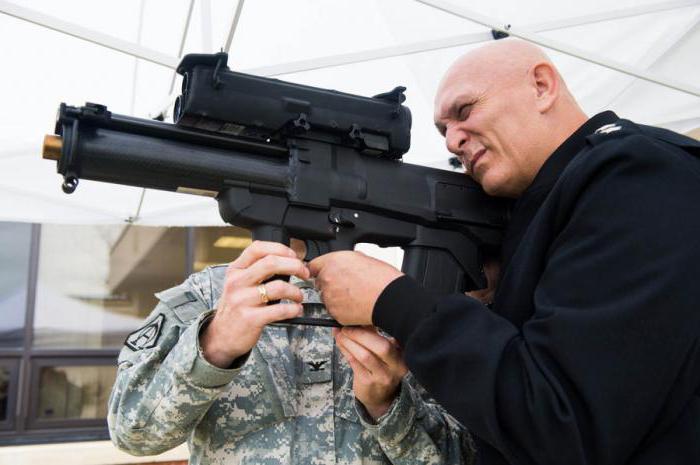
Is it possible to store weapons at home? Requirements and the rules relevant to this issue with respect to individuals are set out in the Law on Arms of 1996 in article 22, “Storage of Service and Civil Weapons, as well as Cartridges for It”.
According to the standards for the storage of weapons of a traumatic nature, only citizens who have special permission have the right to store them. It should be noted that weapons, the acquisition of which is possible without registering with the ATS and having a license, can be stored without documented permission. Thus, in certain cases, without registration and license, you can still organize weapons storage at home. The relevant items include the following items:
- Specialized products, the design of which is similar to the design of weapons.
- Pistols and rifles whose muzzle energy equals three joules, as well as pneumatic revolvers.
- Revolvers, the caliber of which is up to six millimeters, as well as cartridges for them.
- Guns of signal type.
Weapon storage at home: requirements
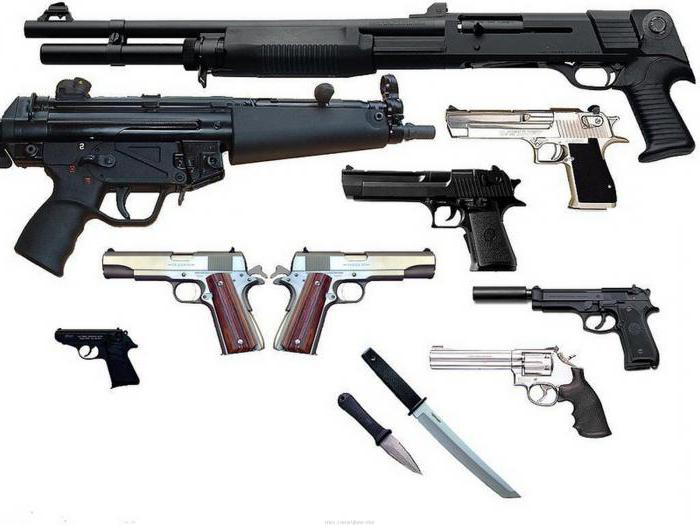
In accordance with the law, service and civilian weapons must be stored under circumstances that are ways to ensure the safety of their storage, safety, and also to exclude access to it by unauthorized people. It should be noted that the requirements associated with the storage conditions for various types of service and civilian weapons (respectively, and cartridges for it) are determined by the Government of the Russian Federation.
The above wording is not very intelligible, it is difficult to argue with this. It is clear that these storage conditions for weapons at home can only be ensured by round-the-clock protection of barrels locked in a weapon safe or metal cabinet. Why? For example, opening an unprotected safe today is only a matter of time, as well as the storage protection class. The world-famous “shell phenomenon" is quite appropriate here: when the car is on the street, the hijacker has extremely little time to crack the alarm; when the car is in a "shell", that is, in the garage, there is the opportunity to mess with it without rushing, because, one way or another, no one will interfere. Thus actually safe storage conditions for traumatic weapons at home are achieved exclusively by combining the use of security and a weapon safe.
Specific requirements on this issue are spelled out in the Decree of the Government of the Russian Federation of July 21, 1998, in Chapter 59, regarding measures to regulate the circulation of official and civilian weapons, as well as their ammunition in Russia. In addition to this legislative act, the analyzed problem is regulated through the Appendix to the order of the Ministry of Internal Affairs dated 04/12/1999 “Instructions on the organization of activities of the internal affairs bodies affecting control over the circulation of service and civilian weapons, as well as their cartridges in Russia”.
Legislation Information
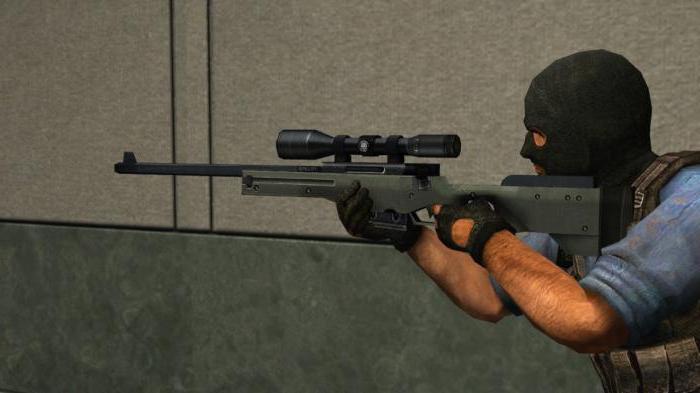
Characterizing Law on Storage of Hunting Weapons at Home Requirements suggest that weapons and ammunition that belong to Russian citizens must be stored in accordance with their place of residence and with conditions that can ensure the safety of storage, the safety of products, and also prevent access by unauthorized persons. It is necessary to add that weapons and ammunition are required to be stored in safes or metal-type cabinets, locked with a key, or in high-strength drawers (for example, in wooden containers covered with iron). It is important to note that the department of the internal affairs bodies corresponding to the place of residence of the owner is vested with the right to inspect weapons that were previously registered. In addition, the storage of the above products by Russian citizens in places of temporary residence is carried out according to the rules, subject to conditions that, one way or another, exclude access to weapons and cartridges of unauthorized persons.
In accordance with the submitted material, characterizing weapons storage at home requirements, in fact, they come down to the presence of a strong box with a lock, which is located at the place of residence (but not registration) of the owner of the weapon. By the way, a metal cabinet of any system exactly meets these requirements.
It should be noted that the most detailed requirements regarding the storage of weapons and ammunition are contained in one of the appendices of the order of the Ministry of Internal Affairs of the Russian Federation. It is in accordance with it that all the activities of the licensing and authorization body are implemented. So, storage requirements for hunting weapons at home, equipment of specialized rooms, warehouses, storages, premises for demonstration, display or trade in arms, as well as shooting ranges and shooting ranges are interpreted as follows:
- Russian citizens are obliged to store weapons and ammunition for them, in accordance with their place of residence, as well as their places of residence, in special safes, metal cabinets that are locked, or in high-strength drawers (for example, wooden containers covered with iron on all sides) .
- Then, when a citizen owns a collection of weapons, a room for storing products should be equipped with a fire alarm. Besides, storage requirements for hunting weapons at home suggest that in the doorway of the corresponding premises there should be a metal entrance door with a duct and additional locks.
- The windows of an apartment or a room located on the top or first floor of a building must additionally contain an installed metal grate in the manner prescribed for storage areas for weapons products.
- Then, when the alarm is not possible, in accordance with technical reasons, boxes and cabinets for storing products must be fixed to one of the walls of the room with steel bolts (at least two), the thread diameter of which is equal to or exceeds sixteen millimeters.
Storage of weapons by legal entities
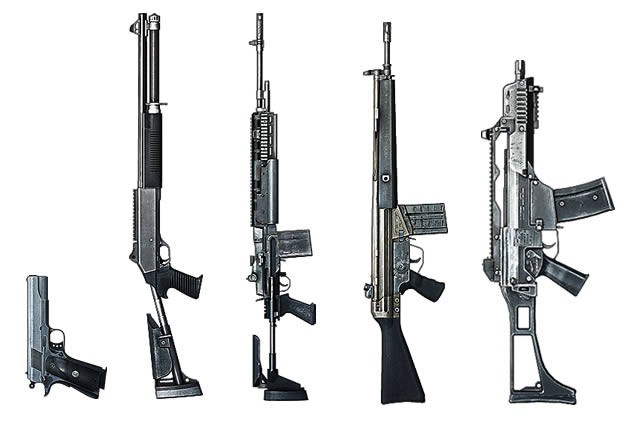
It is important to note that storage requirements for hunting weapons at home (2016 year has not made amendments to this law) presented to individuals are slightly different from the requirements for legal entities. In accordance with the law, weapons products must be stored by legal entities in cabinets, drawers, pyramids and safes, which are installed in specialized rooms. In addition, storage, one way or another, is carried out in a discharged state, with the greased and clean trigger in the deflated position, which is put on the fuse, separately from the cartridges.
A prerequisite is the attachment of tags with an indication of the type, number and model of the product in accordance with the inventory and book of numbered registration and fastening of weapon structures, to weapons located in safes, cabinets, pyramids or boxes. This rule is assigned to all legal entities.
If the legal entity has special statutory tasks, in its weapons room, in accordance with the law, it is allowed to store cartridges in stores, pads, removable drums or clips. It must be added that the product in its original packaging (box, box) can be stored on shelves. Cartridges are stored in bulk exclusively in metal boxes, which are locked in two different secret locks. In addition, in separate cabinets, pyramids, safes or drawers, the following items are stored separately:
- Weapons and ammunition (the exception is the cases referred to in paragraph 164 of the aforementioned law). It is important to note that cartridges that contain pyrotechnic compositions or are equipped with irritating and tear substances, as well as cartridges that gave a misfire, are stored in a separate package.
- An artistically decorated weapon of all varieties that contains precious stones or metals.
- Seized or accepted, in accordance with temporary storage, weapons from citizens or employees of other legal entities.
- Gunpowder, packaged in specialized airtight metal boxes (corking), as well as gunpowder, packaged in plastic bags for retail trade.
The final of the main provisions of the law, which, in one way or another, relate to the storage of weapons by legal entities, is that metal boxes and cabinets in any case must be locked and have a thickness exceeding two millimeters (in the case of storage of gunpowder, cartridges and products with a pyrotechnic charge content, this indicator should be equal to or exceed three millimeters).
Comments on the provisions
If you consider each requirement for a safe for storing weapons at home separately, it is possible to form a certain set of criteria by means of which the questions of the LRR inspector can be avoided:
- The presence of a metal box or cabinet, locked with two locks, the wall thickness of which is equal to or greater than two millimeters.
- The presence of a second safe or a metal box, locked with two locks, for gunpowder and cartridges, the wall thickness of which is equal to or greater than three millimeters.
- Characterizing weapons storage at home requirements (2016 years) suggest that the previous paragraph can be replaced by a compartment for gunpowder and ammunition in a weapon safe, which is locked with a separate lock. It must be added that in this case the thickness of the walls of the compartment should be equal to or greater than three millimeters.
It is important to say that this is only a minimum of requirements aimed at eliminating the possession of foreign weapons by a completely random person. For example, an iron cabinet, whose walls are two millimeters, resists breaking by means of a metalwork tool for only a few minutes. Therefore, if an individual has expensive weapons, one way or another, he needs to take care of acquiring a more serious safe for the product. In subsequent chapters, this issue is considered in more detail.
Specific tips
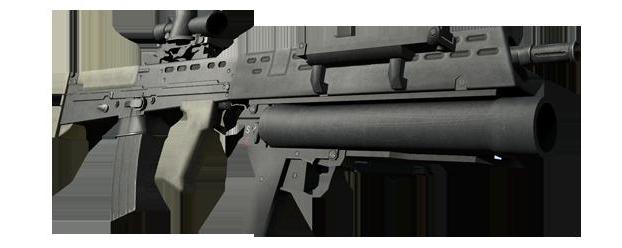
Rules for storing weapons at home consist of numerous items, each of which is important today. First, you need to pay attention to the quality of the locks that are installed in the safe. In no case should the use of apartment-door quality installations, usually made in China, be used. But real practice says that an Italian castle can withstand about five years, an Israeli one for four, and a Chinese one for less than a year. In addition, in recent years, manufacturers of safes often incorporate mail locks into their products, whose life is ten times less than in the case of door locks. In this way, storage of traumatic weapons at home must be secured through real safe locks.
It will be advisable to analyze the following nuance. Since most world standards assume that a weapon safe is nothing more than a metal cabinet, it is very difficult to use safe-fire and fire-resistance criteria in the traditional aspect in relation to it. However, most modern safes for storing weapons cannot be considered resistant to fire or hacking. They can be called simple metal cabinets.
However, storage of hunting weapons at home, in accordance with the relevance of the above criteria, is not at all an extra safety measure. The fact is that, for example, fire resistance guarantees the exclusion of unexpected shelling of exploding ammunition against the owner or employees of the fire service in case of fire. By the way, for this reason, for safety and economy, experts recommend storing cartridges in a separate safe.
Safe Issues
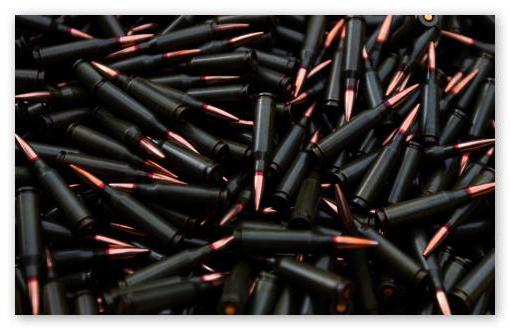
As it turned out, characterizing rifle storage at home requirements suggest a metal box, and better - a safe. In accordance with generally accepted standards, the latter is a device whose base area does not exceed two square meters, designed to store documentation, valuables, as well as information carriers. It is important to note that, in one way or another, the safe is a hacking resistant structure.
It is necessary to supplement that in the number of characterizing storage rules for smoothbore weapons at home Items include, at best, the presence of a fireproof safe. It should be understood as a device, the base area of which does not exceed two square meters, designed to store documentation, valuables and storage media, resistant not only to hacking, but also to the effects of destructive fire factors.
What determines the resistance to cracking? This is the number of resistance units that can be obtained by breaking a container with full or partial access. It must be added that full access, in addition to passing through the hole in the safe, involves opening the safe door to a width exceeding three hundred millimeters, or removing the built-in device.
Test implementation
How are security cracking tests performed today? Characterized by rifle storage at home requirements suggest a metal device, so this issue is also very important in the general storage problem. In order to find out the cracking resistance class, today organizations often conduct certified tests. It should be noted that this provision applies solely to entities whose activities are licensed.
Testing is expected on selected samples. The fact of achieving absolute access recognizes the possibility of penetration into the device by one of the following “calibers”:
- A circular cross section, the diameter of which reaches thirty-five centimeters.
- A square section, the edge length of which is thirty-one and a half centimeters.
- A rectangular cross-section, the length of the edges of which is thirty-thirty-three centimeters. It is important to add that the length of the "gauges" should, if possible, exceed four hundred millimeters.
Carrying weapons
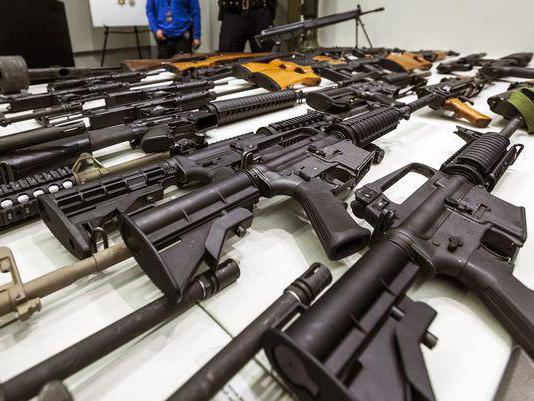
Today, the carrying of weapons by citizens of the Russian Federation is carried out on the basis of licensing permits issued by the internal affairs bodies for carrying and, accordingly, storing certain types, types and sizes of weapons - during sporting events, hunting, or training firing.
It is important to note that it is strictly forbidden to use cartridges and weapons that are technically defective, as well as mechanized sprayers, aerosol and other devices that are equipped with irritating and tear substances, the storage period or shelf life of which has expired. The exceptions are cases of testing and research of a research nature or checking the technical condition of devices.
It is necessary to know that when carrying a weapon, any citizen must have with him a personal document proving his identity. This can be a passport, military or hunting ticket, as well as an official ID. In addition, the citizen must have with him a license issued by the internal affairs bodies to carry and, accordingly, to store his weapons.
Weapon transportation
It is important to keep in mind that the owners of cartridges and weapons for their transportation in the Russian Federation must obtain the appropriate permission from the licensing and permitting unit at the place of residence and registration.
Citizens who organize the transportation of their weapons in the amount of more than five units and cartridges of more than four hundred are obligated to submit to the state bodies of internal affairs, in accordance with the place of registration of weapons, a statement, as well as information about weapons and cartridges, the route of movement and the transport used , as well as about the persons whom it is planned to involve in the implementation of security measures, in order to obtain the necessary permission. It is important to add that the period of validity of a transportation license is set based on the calculation of the actual time needed to deliver cartridges and weapons directly to their destination. However, the period shall not exceed one calendar month.
These are the basic requirements for the storage and transportation of weapons on the territory of the Russian Federation. Non-compliance with them is fraught with problems with the law, the imposition of sanctions on a person who violated the law and endangered other people.
Both linguistically and legally absolutely illiterate.